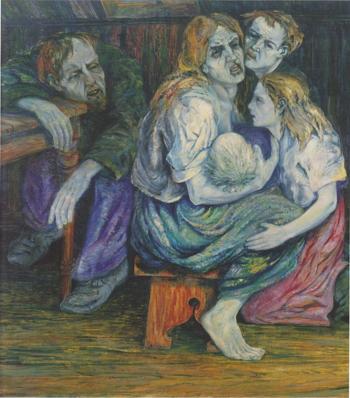The term “addiction” is used in many contexts to describe an obsession, compulsion, or excessive physical dependence or psychological dependence, such as: drug addiction, video games, crime, alcoholism, compulsive overeating, problem gambling, computer addiction, pornography, compulsive shopping, workaholism, over exercising, etc.
such as: drug addiction, video games, crime, alcoholism, compulsive overeating, problem gambling, computer addiction, pornography, compulsive shopping, workaholism, over exercising, etc.
Addiction severely impacts not only the addicted or dysfunctional person but also everyone who comes in contact with them (loved ones, friends, family, children, co-workers, neighbors, associates, etc.).
Addiction may involve having a dependence on a substance (i.e., alcohol, marijuana, food, prescription or nonprescription drugs) or an activity (i.e., shopping, gambling, hoarding, self-injury, etc.). It can be either a physical (as in the case of most drugs) or psychological (as in the case of most activities) compulsion to use the substance of activity as a way to cope with everyday life, problems and/or circumstances. The dysfunctional person will often have deep seated feelings of guilt and shame which they try to cover up.
Addiction is a habitual behavior that is extremely difficult to control and leads to activities that are designed solely to continue or cover up the addiction itself (e.g., an alcoholic hiding bottles around their home, the drug addict embezzling to support their habit, lashing out in anger blaming others for their own behaviors or consequences of those behaviors).
In line with the defense mechanism of denial – addicts often blame their problems upon various factors in their lives – a difficult boss, an unsupportive spouse, or persuasive friends – rather than taking responsibility for their own actions.
Drug addictions consist of a biochemical dependence on a substance in order to create a desired effect or “high.” Due to a biochemical process called tolerance, overtime the body needs ever-increasing amounts of the substance in order to produce this “high” and to ward off any symptoms of withdrawal. Ongoing drug use can lead to actual changes in body chemistry to the point that the body begins to require the drug.
Non-drug addictions and behaviors include compulsive spending, smoking, sexual addictions, gambling, hoarding, self-injury, compulsive overeating, anorexia, etc.
Many addictions begin by simple experimentation – going to a casino or trying a drug. When a person enjoys the experience they continue doing it.
Eventually, the abuse of a substance occurs when a person becomes dependent on the substance and requires it in order to avoid experiencing symptoms of withdrawal.
Although a majority of addicts insist they can stop using a substance at any point in time, most addicts have very little to no control over their substance use.
Such substance abuse is often in order to cover up several different underlying emotional problems including depression, chronic illness, bipolar disorder, or hyperactivity.
Key characteristics of addiction include: patterns of uncontrollable behaviors or substance use for a year or more; increasing patterns of behavior or substance use over time; mood swings; feelings of self-worthlessness or shame; impulse control problems – with food, drugs, sex or money; strong needs to be liked or approved of; behaviors or substance use to reduce anxiety; unmanageably; obsessions over a behavior or substance; guilt and shame; negative consequences to self or others; failure to control.
If the addict or dysfunctional person seeks help in time, the addiction and/or behaviors can often be changed, mitigated or eliminated entirely. Freedom is possible!
